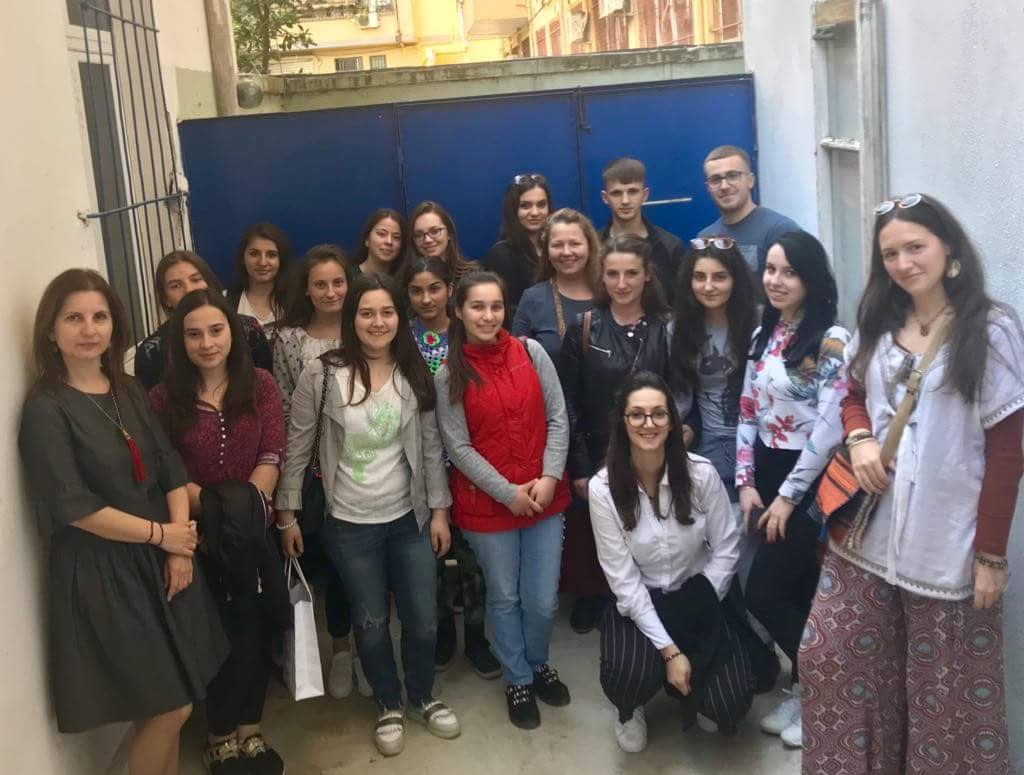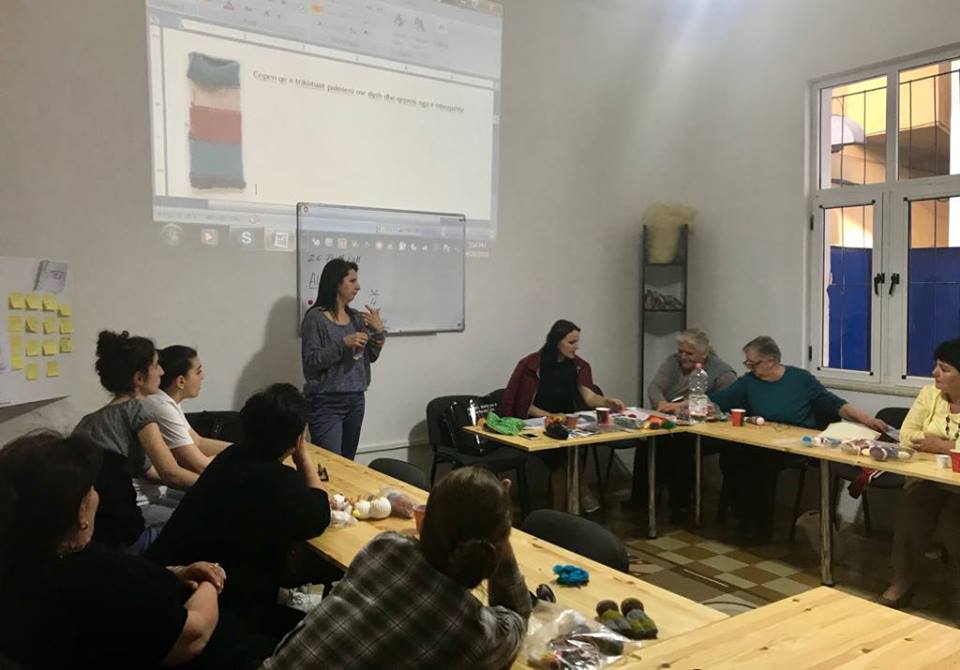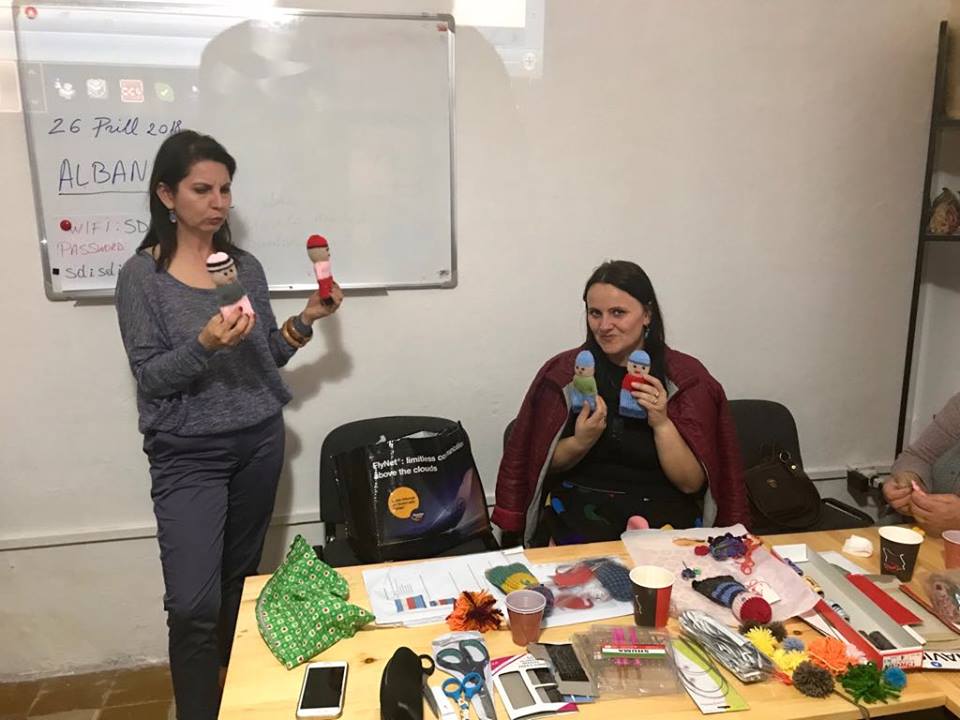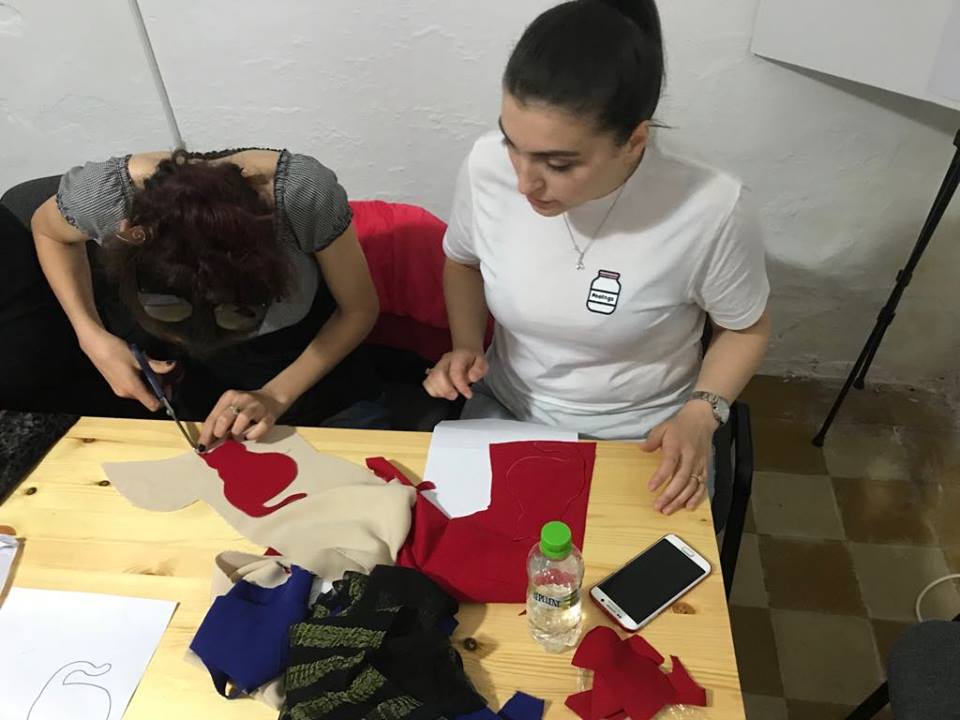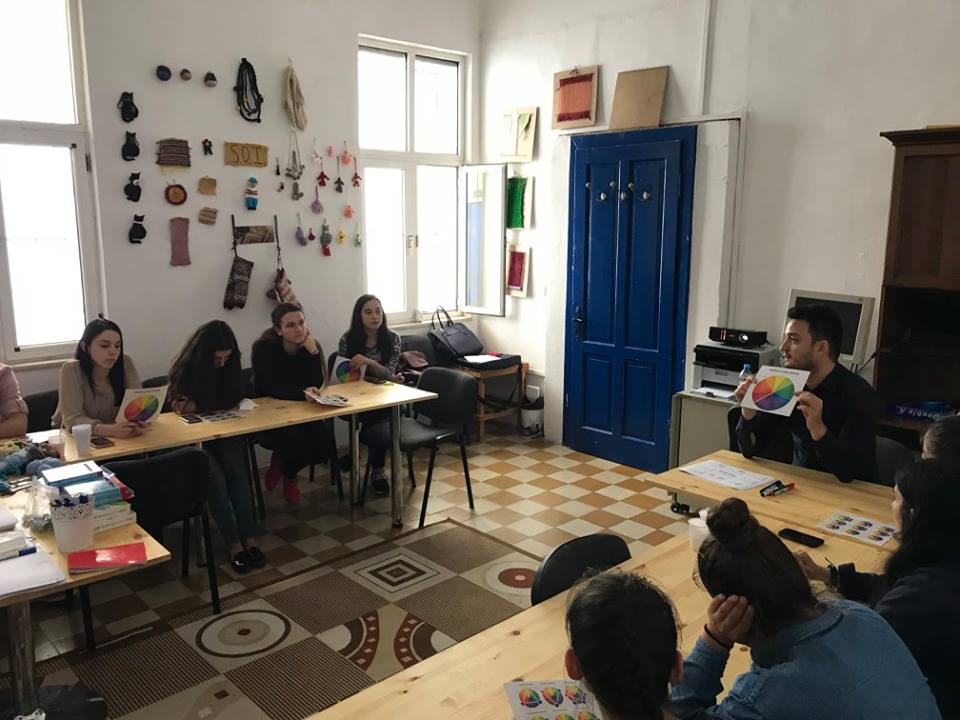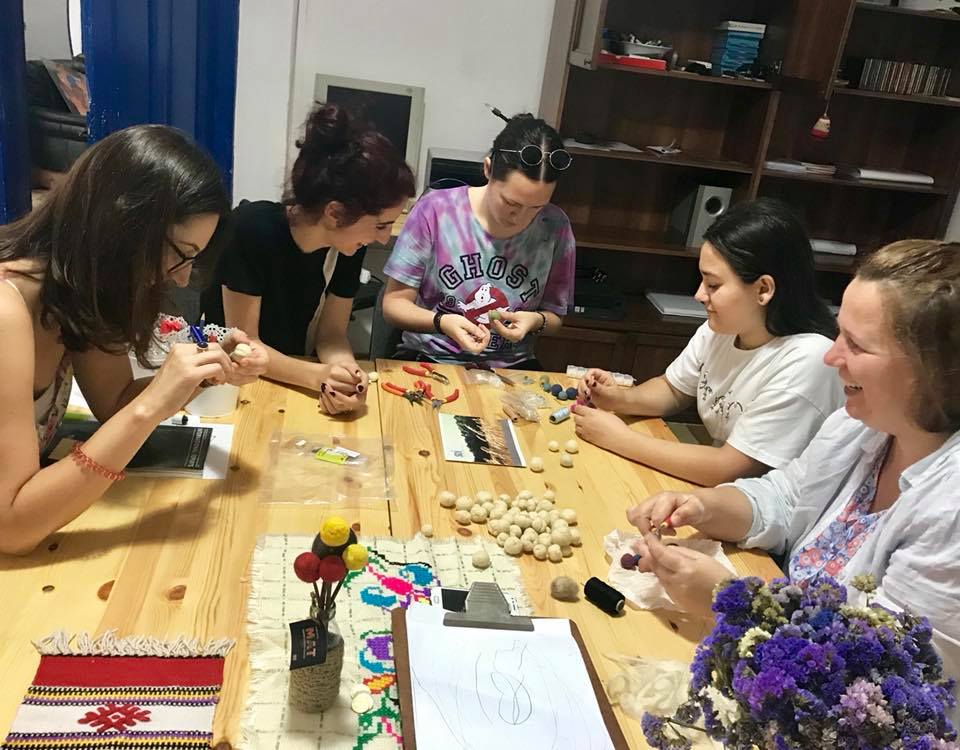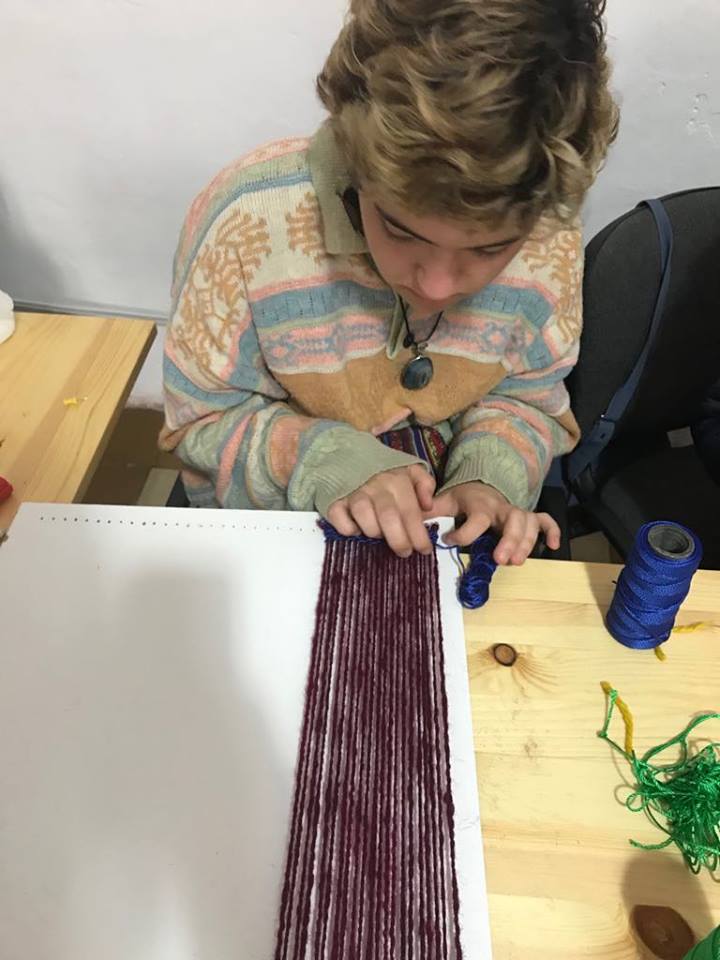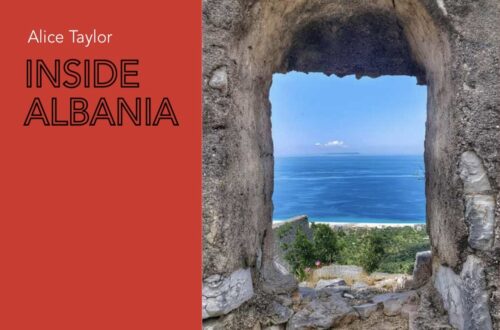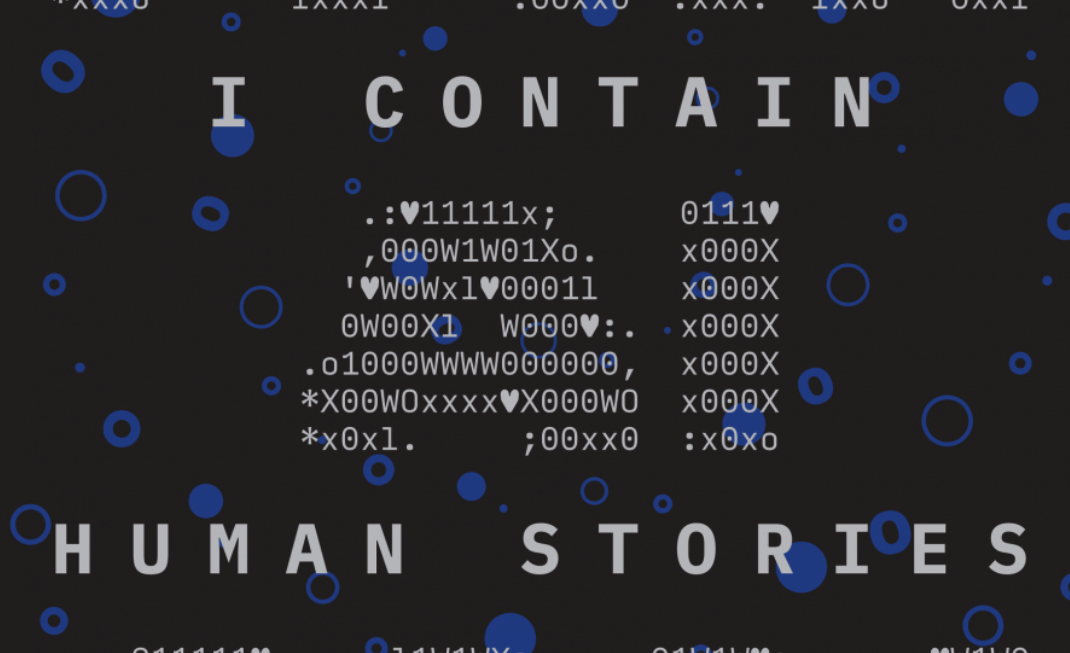I instantly warmed to Elias as he came bounding into the coffee shop- a mass of hair, smiles, and enthusiasm. I had heard about his work through a mutual friend, so when he contacted me, I jumped at the chance to interview him.

Elias Mazloum hails from Mt Lebanon region of Lebanon and grew up amongst a family full of women. With many sisters and a strong matriarchal figure at the helm, he quickly understood the strength and power that women have. Following a devastating terrorist attack in which his sister was badly injured Elias decided to travel abroad to make more money to help support his family.
“I praised women, I am passionate about every aspect of them” he tells me as we talk about his upbringing and move onto the work he has dedicated his life to.
He travelled to Ghana in 2007 to work for the father of a friend, leaving his Masters in Marketing half completed. After six years working on a range of different projects, he decided to open his own company but this was not to last long. He became conscious of the fact that he was like so many other foreign entrepreneurs in the country- moving there, setting up a business, making money, and leaving without really giving much back. This did not sit well with Elias and he wanted something more. Fate was soon to intervene and he met his now wife- an Albanian woman who was working for a Ghanaian microfinance company. This idea of developing communities, providing financial opportunities, and being able to give something back, really struck a chord with him and from that moment on, he threw himself into this new sector. Quitting his well paid corporate role, he immersed himself into the field of microinsurance.
They then both moved to Namibia around 800km from the capital in an incredibly rural area. After two years of working on a successful micro-insurance project there, they moved once more to Mozambique. This was the most rural and impoverished place that Elias had ever been to- decimated by floods and rain, they spend 40 days without electricity and had to walk to collect their own water. The adverse conditions did little to dampen their spirits, and Elias married his wife there (the first non-Africans to get married there) and she became pregnant with their first child.
It was then that the decision to return to Albania was made. As soon as Elias arrived in Tirana, he realised that he had fallen in love with the country and did not want to leave. After long discussions with his wife and several people calling them crazy, they decided to make the country home.
“I fell in love with the place, the people are nice, the food is good, there is a lot of potential here. There is also a lot of need for women empowerment, it is somewhere I feel I can make a difference,” he tells me ardently.
It was then a combination of events that inspired his project in Albania. Firstly, he visited his wife’s hometown of Kukes in the North of the country. He describes it in terms of the scenery as “the Switzerland of Albania “but also speaks of how much development is needed there, particularly economically and for women. This sparked one year of market research into the products that could be made, the materials used, and whether there was any demand for them abroad. Then one day in January when visiting the immigration department, he spotted several women sitting outside under the trees knitting traditional socks. His curiosity piqued, he went over to speak to them and discovered that these beautiful, handcrafted, Albanian wool items were selling for just 300lek (around EUR2.30) and the reason they were sat outside is that they had nowhere to sell them.
It was then that he decided to set up a pilot project comprising of 25 women from the suburbs of Tirana. These 25 women have been joined by technical high school students, a product development entrepreneur, a colour matching and packaging designer and other technical experts to help them hone their craft.
The pilot was of course, not without its problems. Despite finding many women suitable and interested in being a part of the project, many of their husbands would not let them leave the suburbs and instead insisted they stay at home. Unperturbed, Elias changed his strategy and decided to train this first batch of women to be community leaders so that they could go back to their areas and involve other local women in the project, whilst providing mentoring to them as well. From these 25 women, five registered businesses will be set up and each one will work as a production unit within each community.
The products will then be sold in Tirana in places that usually attract tourists. Elias also has shops in France, Canada, and Switzerland that will be stocking the fruits of these women’s labour. The products are sold for fair prices and all of the money is ploughed back into the women’s ecosystem to encourage growth and economic independence. In a country where 1 in 2 women suffer domestic violence including economic violence, being self-sufficient and capable of providing for themselves is an extremely important matter.
As the pilot project has been such a success thus far, Elias has decided to expand his horizons. The next project will start in Kukes soon and comprises of the same model but with 100 local women. These individuals are artisans, craftswomen, shepherds and wool processors, whilst others will be involved in logistics. They will all receive professional training on product development, new techniques as well as marketing and business skills. Once trained, again they will open their own businesses and produce their products en masse to be sold abroad in foreign markets. All profits will be returned to them. He is also working on another project in the south that is benefitting from EU and UNDP funding and it involves training women on how to make soap from olive oil and then sell it as a commercial product.
There is no doubt that there is a demand for these products- sumptuous woollen rugs, soft socks, beautiful jewellery and other products are all highly sought after abroad- the key is connecting these markets with the women that make them and of course, ensuring they are fairly paid. The other important part of this project is empowering these women and creating an environment where they can be financially and economically independent by creating a sustainable business model. Bringing money, business, and stability to these areas is an extremely important part of healing many of the social issues present in the country.

Furthermore, many of these skills and talents are becoming a dying art. If these women think that no one wants to buy them, or they are just getting pennies for their efforts, they will soon stop bothering. By encouraging them and providing buyers that will pay a fair price, it helps to preserve the artistic traditions of one of Europe’s most culturally rich places.

But Elias’ties to Africa are still strong- he is still doing pro bono marketing for Shakazulu in Ghana. When he lived there he discovered that shea butter of the finest quality was being sold for as little as $2 per kilo. Of course, in the Western world, it is an expensive commodity used in many high-end products and retailing for around $45 per kilo. He works with around 45 women in the North of Ghana where the produce and work the shea butter and export it to various countries. It is also used in beauty products and mixed with other ingredients such as cocoa butter to create sumptuous, natural skincare treats.

Every month, he holds an African event in a different location in Tirana and this month it is at Coko on Wednesday evening. Called ‘African Utopia‘the event combines African music, a photography exhibition, and an opportunity to try or buy Shakazulu shea butter products or purchase African clothing and prints. I for one will be there with bells on! There will also be African cocktails on the menu which sound like they will be perfectly refreshing for a hot summers evening. It is also a great opportunity to meet the man behind this wonderful project, and I highly recommend that you do!
The way Elias talks about Albania is very similar to the way that I do. We both visited and fell in love with the country and despite its problems, we have tried to carve a niche where we can enjoy the beauty that is here, whilst helping to heal its wounds as well.
It is truly inspiring to meet someone like this who has dedicated his life and time to supporting the development and empowerment of others. Instead of pursuing the corporate, self-serving route, he has funnelled his skills into making other peoples lives better. The work he is doing is invaluable and I hope that it continues to grow and grow and make a lasting change on all of the communities involved, for generations to come.
Follow The Balkanista!
